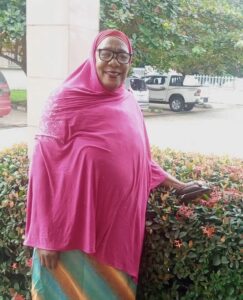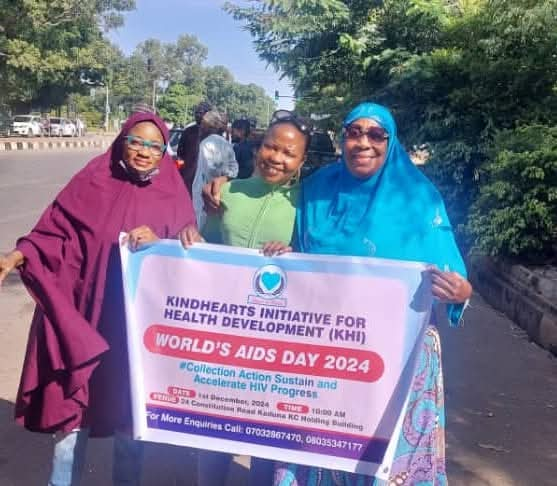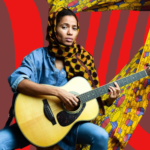Once shunned by close relatives, women and children affected with HIV in one Kaduna community have found hope and purpose again, thanks to one woman’s unwavering support.
By Mohammed Ibrahim
In 2014, not long after her second husband died, Malama Binta Lawn Sulaiman tested positive for HIV. Within weeks, her body exploded with severe rashes, and her health declined rapidly, causing her friends and relatives to withdraw from her.
In her new state of isolation, Sulaiman struggled to care for her children, two of whom had also contracted the virus. Medical care was scarce, food was hard to come by and Sulaiman was losing considerable weight by the day.
“I was so sick that I couldn’t even walk. Some were suspecting I had AIDS, and my condition started deteriorating,” she recalls of her ordeal.
Her harrowing experience persisted until 2016, when she encountered a small community offering succour to women and children living with HIV/AIDS in Kaduna.
A Glimmer of Hope
At the heart of this group was Aisha Usman, fondly called Hajiya. Having lived with HIV for more than twenty years, Usman founded the Al’umma Foundation in 2003 as a safe haven for Muslim women and orphans in Kaduna affected with the virus in Kaduna.
Each month, Usman gathered the survivors in the courtyard of her home in Rigasa, doling out rice, milk and other staples while counselling them on how to live long and healthy lives amid their status.
She didn’t stop there.
Oftentimes, she personally drove many of the women to the hospital to collect their antiretroviral medication.
“After I met Aisha, she educated me and other women in my condition on the basics of HIV and AIDS,” Sulaiman says.
The monthly meetings at Usman’s home offered a great sense of community to the survivors, allowing each one of them to share their stories and draw support from the other.
“She assists us in answering our questions each time we approach her,” adds Sulaiman.
As word of the meetings spread, more HIV-positive women in Rigasa gravitated towards the Al’umma Foundation. Zubairu Rukayya, a widow living in Rigasa, had slipped into depression when she discovered she had HIV, locking herself indoors and crying inconsolably. Then she met Usman.
“I have become a changed person. Now I don’t worry about my status,” said the mother of three.

Sulaiman and Rukayya are among 1.9 million people reportedly living with HIV in Nigeria. Data ranks the north-central flank, which includes Kaduna, as having the second-highest HIV population after the south-south region. As of June 2024, the HIV prevalence rate in Kaduna stood at 1.1%, according to the state’s AIDS control agency.
Nigeria’s fight against HIV has relied heavily on foreign support from organisations such as USAIDS, whose recent cut in international aid, following a funding freeze by President Donald Trump, has left HIV care and support systems struggling.
Yet, for women like Rukayya, the Al’umma Foundation fills a critical gap often overlooked by larger interventions.
“There are a lot of women dying in silence for fear of discrimination because of the kind of environment we are living in,” she says.
In the years since it started, the Alu’mma Foundation has welcomed more than 500 women and children living with HIV.
Despite its increasing impact, the support group depends largely on Usman’s personal funds, augmented by occasional donations from well-wishers in the community.
“Sometimes the donations come late, and we all become worried,” laments Sulaiman.
Usman’s awareness campaigns in Rigasa confront deep-rooted prejudices and stigma against the HIV survivors.
Economic hardship also compounds the women’s woes. Many widows, like Rukayya, struggle to afford a 3-square meal and find it increasingly hard to care for their children.
“The drugs we are using require food, meaning the person taking the drugs needs to eat enough,” she explains.
The meetings, nevertheless, have been a source of security for women previously weighed down by neglect and despair.
“Each time I remember some of the motivational talks of Hajiya,” Rakayya says, “I develop strength and hope about life. Her counselling is what kept me going, especially during the hardest times.“
Usman’s periodic counselling has also boosted their knowledge about their conditions.
“I can now educate other women about HIV status and direct them to centres where they can get their drugs,” Sulaiman says with pride.
An undying will
Although the group has lost a few women and children over the years, its commitment to be a lifeline to HIV survivors in Rigasa has remained unshaken.
“We are also doing community and house-to-house HIV counselling, testing, and referral with support from KindHeart Health Initiative for Development (KHI),” Usman says, highlighting extra efforts to ensure that people affected with the virus follow their treatment strictly.
Usman’s own story embodies hope. Years of consistent antiretroviral therapy reduced her viral load to undetectable levels, making her unable to transmit the virus.
For more than a decade now, Usman has lived with her HIV-negative husband in Rigasa, where she continues to support other survivors, proving that an HIV diagnosis does not mean an end to life.
Usman can be reached on: 0803 639 0886
This story was produced with the support of Nigeria Health Watch through the Solutions Journalism Network, a nonprofit organisation dedicated to rigorous and compelling reporting about responses to social problems.
In a Kaduna community, women and children affected by HIV have found a lifeline through the efforts of Aisha Usman, a woman who has lived with HIV for over two decades. Usman founded the Al’umma Foundation in 2003, providing a safe haven and support for Muslim women and orphans affected by the virus. Usman’s initiative includes monthly gatherings where she distributes essential food items and provides counseling on living healthy lives. She also personally drives women to collect antiretroviral medication and educates them about HIV, helping to combat stigma and prejudice.
The foundation, which has helped over 500 women and children, faces financial challenges, relying on Usman's personal funds and sporadic community donations. Despite these challenges, Usman’s commitment remains unshakeable, promoting awareness and providing community HIV counseling and testing. Her impact is highlighted by personal stories, such as that of Malama Binta Lawn Sulaiman, who found strength and knowledge through Usman’s counsel and now educates others. Usman’s own experience showcases that an HIV diagnosis does not signify the end of life, as she continues to support and inspire others while living with HIV.






